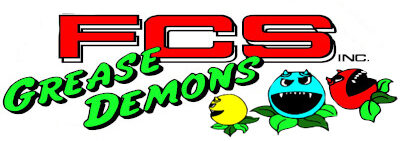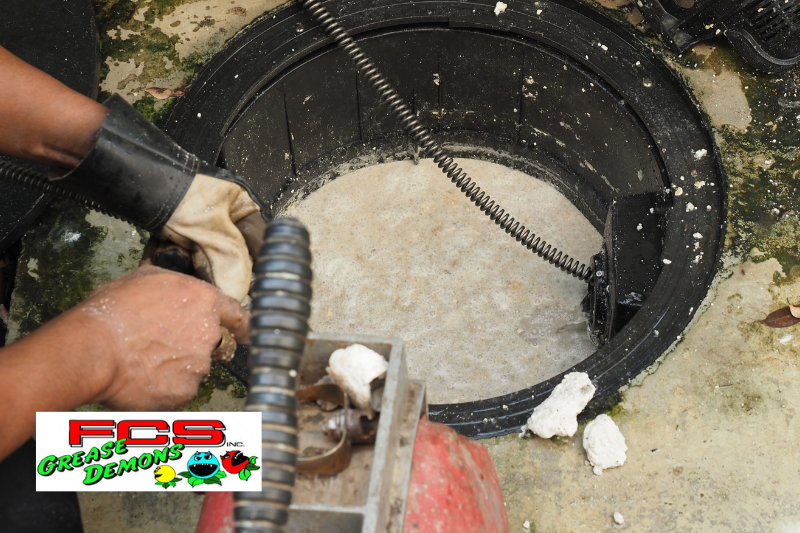7 Common Lift Station Maintenance Tasks
Lift stations are essential components of wastewater management systems, especially in areas where gravity alone isn’t enough to transport wastewater to treatment facilities. In businesses like restaurants and food service establishments, lift stations often work in conjunction with grease traps to ensure that fats, oils, and grease (FOG) don’t clog pipes and disrupt operations. Proper maintenance of lift stations is crucial to avoid breakdowns, prevent costly repairs, and ensure that your business runs smoothly. In this blog post, we’ll cover seven common lift station maintenance tasks that every business owner should be aware of, especially when grease traps and lift stations work together in your facility.
1. Regular Inspection of Pumps and Motors
The heart of any lift station is its pumps and motors. These components work together to move wastewater from lower elevations to higher ones, allowing it to reach the treatment facility. Over time, pumps and motors can wear down due to constant use, especially in high-demand environments like restaurants. Regular inspection is critical to identify potential issues before they become major problems.
During inspections, a technician will check for signs of wear, overheating, unusual noises, or vibrations. If any issues are detected, repairs or replacements may be necessary to ensure that the lift station continues to operate efficiently. Preventative maintenance on these critical components can save your business from unexpected downtime and costly emergency repairs.
2. Grease Trap Cleaning and Maintenance
In restaurants and food service businesses, grease traps play a crucial role in preventing fats, oils, and grease from entering the lift station and clogging the system. However, grease traps require regular cleaning and maintenance to function effectively. If not properly maintained, FOG can build up and eventually make its way into the lift station, causing blockages and malfunctions.
Grease trap cleaning should be performed regularly based on your business’s needs and local regulations. Neglecting this task can lead to backups, foul odors, and costly repairs. By keeping your grease trap clean and well-maintained, you help protect the lift station from grease-related issues and ensure smooth wastewater flow.
3. Float Switch Testing and Calibration
Float switches are essential components of lift stations that control the operation of the pumps. These switches monitor the water levels in the lift station and activate the pumps when the water reaches a certain level. If the float switches malfunction, the lift station may either fail to pump wastewater or run continuously, leading to excessive wear on the pumps.
Regular testing and calibration of float switches are crucial to ensure that they are functioning correctly. A technician will inspect the float switches for any signs of damage, test their responsiveness, and calibrate them to the correct water levels. Properly functioning float switches help prevent overflows and ensure that the lift station operates efficiently.
4. Cleaning and Removal of Debris
Over time, debris such as grease, solids, and other waste materials can accumulate in the lift station. This buildup can reduce the efficiency of the pumps and increase the risk of clogs. Regular cleaning and removal of debris are essential to maintaining the lift station’s functionality and preventing blockages.
Cleaning the lift station involves removing any solid waste, flushing the system, and ensuring that the pumps and other components are free of debris. Depending on the volume of wastewater your business handles, this task may need to be performed more frequently in high-demand environments. Routine cleaning can help prevent costly breakdowns and extend the life of your lift station.
5. Valve Inspection and Maintenance
Valves play an essential role in controlling the flow of wastewater through the lift station. These components regulate the pressure and ensure that wastewater moves in the right direction. If a valve fails, it can lead to backflow, overflows, or reduced pumping efficiency.
During routine maintenance, a technician will inspect the valves for signs of wear, leaks, or damage. They may also lubricate moving parts to ensure smooth operation. Regular valve maintenance helps prevent unexpected failures and keeps your lift station running smoothly.
6. Backup Power System Checks
Lift stations rely on electrical power to operate the pumps and other components. In the event of a power outage, a backup power system, such as a generator, ensures that the lift station continues to function. Without a backup power system, your business could face significant disruptions if the lift station stops working during a power outage.
Regular checks of the backup power system are essential to ensure that it will function properly when needed. This includes testing the generator, checking fuel levels, and ensuring that the automatic transfer switch is working correctly. Having a reliable backup power system can prevent costly downtime and protect your business from potential health and safety hazards.
7. Monitoring and Recording Performance Data
One of the most important aspects of lift station maintenance is monitoring the system’s performance and keeping detailed records. Regular monitoring allows you to track the lift station’s efficiency, identify potential issues early, and make data-driven decisions about maintenance and repairs.
Technicians can use performance data to spot trends, such as a decrease in pump efficiency or an increase in energy usage, which may indicate a need for maintenance. Detailed records also provide valuable insights into the history of the lift station, making it easier to diagnose problems and plan for future repairs or replacements.
Contact FCS Inc. Today For Lift Station Cleaning and Maintenance
Proper lift station maintenance is essential for ensuring the smooth operation of your business’s wastewater management system. By regularly inspecting and maintaining pumps, motors, float switches, valves, and backup power systems, you can prevent breakdowns, avoid costly repairs, and protect your business from potential disruptions.
In restaurants and food service establishments, grease traps play a significant role in maintaining the health of your lift station. Regular grease trap cleaning and maintenance are critical for preventing FOG from entering the system and causing blockages. Working with a professional service provider like FCS, Inc. ensures that your lift station and grease trap are properly maintained, giving you peace of mind that your business’s wastewater management is in good hands.
At FCS, Inc., we specialize in lift station maintenance, grease trap cleaning, and other services designed to keep your business running smoothly. Our team of experienced technicians is here to help you develop a customized maintenance plan that meets your business’s unique needs.

